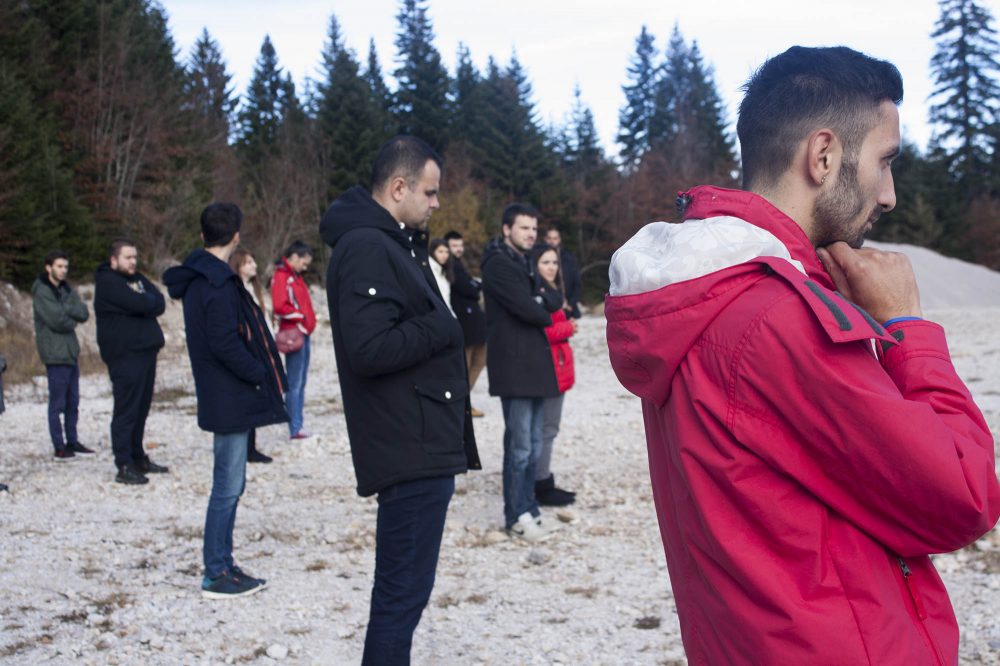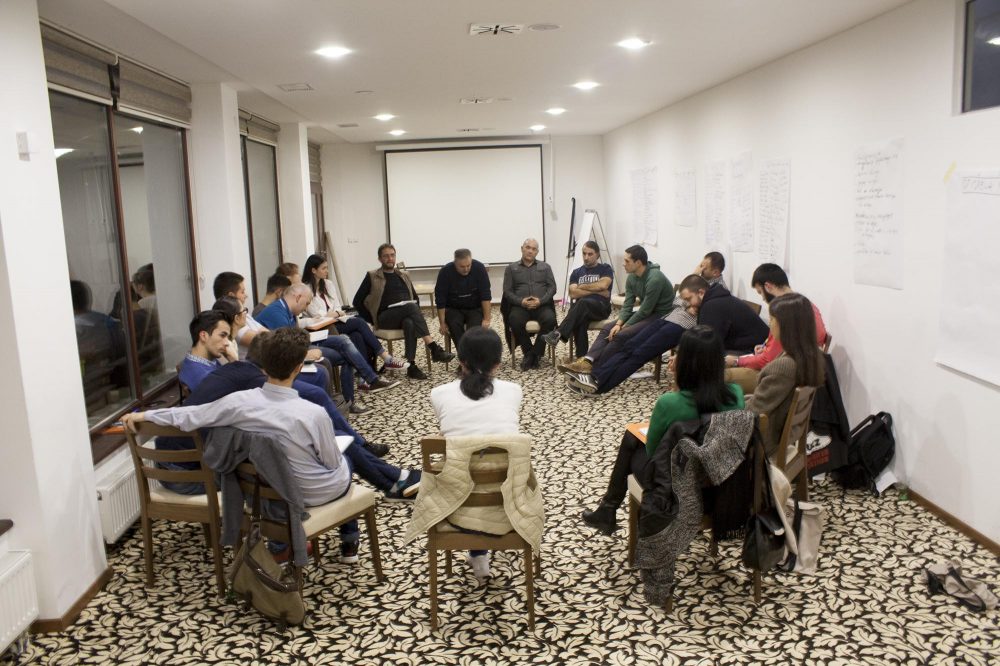The second Peacebuilding Training for Students was held from 6 to 11 November 2015. The location was Hotel Bjelašnica.
Much was gained in terms of content, and the change in some of the participants visible compared to the first training at Mount Jahorina left a deep impression, as did the readiness to take on difficult topics without reservation. As at the first training, this was largely due to the readiness of participants for self-reflection, as well as the input of the training team that focused the process.
In the first part of this training, we worked on cooperation, decision-making, teamwork and conflict, and the tempo was a bit slower, partly because it was the beginning and people were still adjusting, but also due to some errors in conducting the exercises. The second part consisted of working at the social level, so we turned our attention to the topics of: discrimination, dealing with the past, creative conflict resolution, and ways of nonviolent action.

Most of the participants were deeply impressed by the exercise “A Step Forward” because it examined awareness of injustice and inequality, as well as solidarity with marginalised groups in society. This was a big task, but the group handled it maturely. During the experiential exercises, there were many powerful and constructive moments. Creative conflict resolution was an opportunity for students to recognise violence around them and to think about how to address it. They had previously done workshops on conflict and roles in violence. Apart from their readiness to tackle sensitive issues, the creativity of the participants deserves the highest praise. Workshops on the topic of dealing with the past showed that the generations born during and after the war were aware that there was something amiss in the narratives that surround them. The exercise “Heroes” was an excellently used opportunity to critically discuss these dominant narratives. The discussion of family narratives was particularly intense. There was no lack of readiness to share and self-reflect, and there was a sound critical approach to the micro-contexts of the participants.
The most emotional part of the training was the visit by war veterans, two of whom are also disabled war veterans, Mirko Zečević Tadić, Ibrahim Topčić and Spasoje Kulaga from the three opposed sides of the 1991-1995 war in BiH – HVO, ABiH and VRS. A member of the training team, also a war veteran, joined the presentation. They shared with us their life experience, focusing on the war and their post-war peace activism. There were many questions, the students showed great interest in the way the war veterans had lived through the war period, and about how they felt at the time. There was a feeling that war could happen to anyone, that we are all responsible for its escalation and that peace work is the only acceptable option. The workshop brought forth a new, inter-generational energy and strengthened and motivated both groups, the veterans and the students, for further peace work.

We spent the last day talking about nonviolent action, and about the best tools to effect change in your environment. The participants demonstrated ample creativity in coming up with different types of nonviolent action to solve the problems they face, both in the exercises concerned with creative conflict resolution and in brainstorming ideas for tackling the problems around them.
Although initially designed as the second phase of the Jahorina training, this was an independent training, both because of our planning and because of the fact that we were joined by three new participants that brought new energy to the training. Due to many last-minute cancellations, the training was attended by 15 students. Working with a smaller group of participants showed its positive sides, group cohesion and trust were built very quickly, and there was a common need to actively participate, which made for a very active training. Motivation was at a high level and there was a constant need and desire to do more.
Planning the training was a particular challenge for the training team because the needs of most of the group to deepen the experience gained through the first phase had to be reconciled with the needs of the new participants that had not been with us at Mount Jahorina and whom we knew only through their applications. We planned to work on diverse and demanding topics, and it all had to be fit into four days. The training team comprised Adnan Hasanbegović, Dalmir Mišković, Jordančo Poposki, Katarina Milićević and Nataša Okilj.
Dalmir Mišković